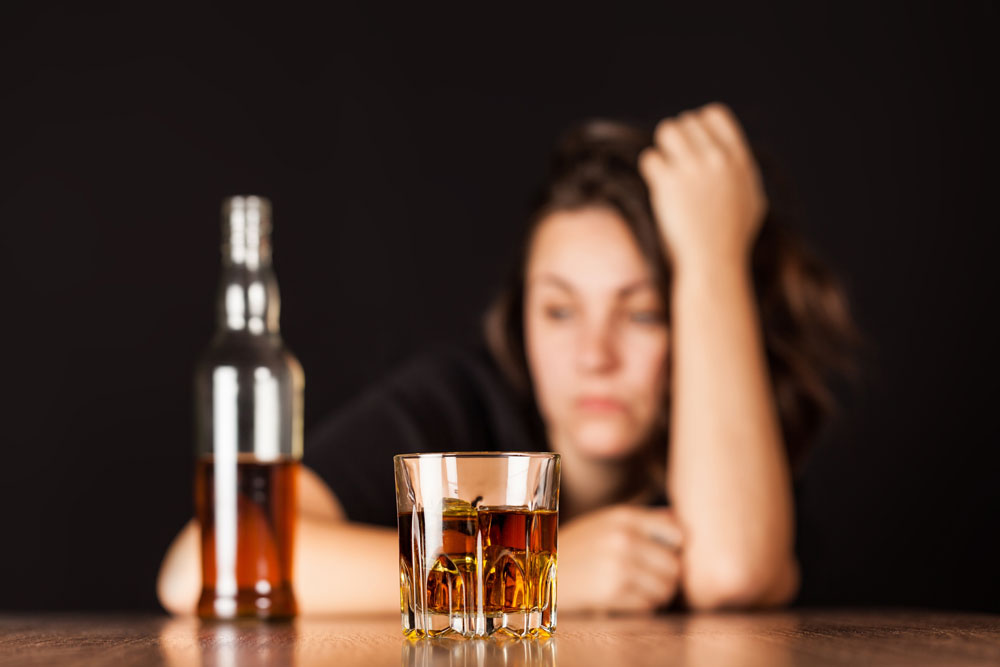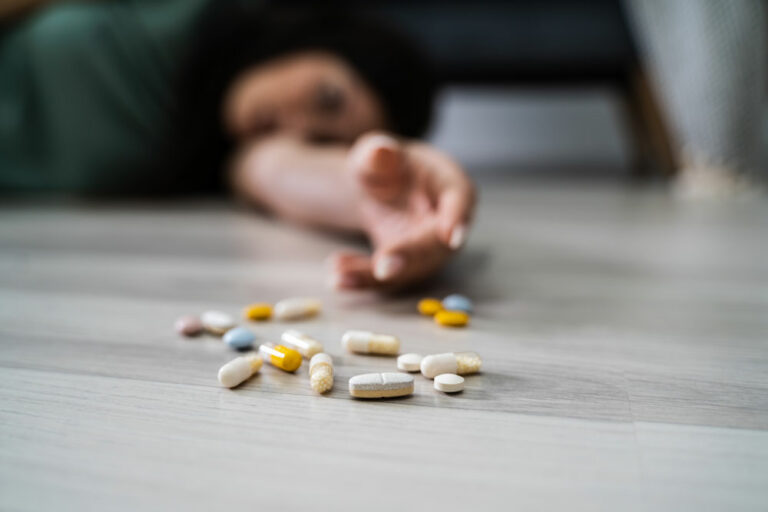A Step-by-Step Guide to Benzodiazepines: Benzo Abuse, Benzodiazepine Withdrawal, Benzodiazepine Detox, Benzodiazepine Treatment and Benzodiazepine Rehab
What are Benzodiazepines?
Benzodiazepines, or benzos, are a class of drugs used to treat some mental illnesses such as anxiety and panic attacks and also medical conditions such as insomnia, epilepsy, tremors, acute seizures and muscle spasm. More than a dozen benzodiazepines are available as medications and are prescribed by doctors to treat legitimate conditions. Benzodiazepines include household names such as Ativan, Klonopin, Xanax and Valium. The chemical name for Ativan is lorazepam, for Xanax it is alprazolam, for Klonopin it is clonazepam and for Xanax it is diazepam. Xanax and Ativan are shorter acting benzodiazepines. Klonopin and Valium are long acting benzodiazepines. Ativan, Klonopin, Xanax and Valium are prescribed widely and are also the most abused types of benzodiazepines.
How Do Benzodiazepines Work?
Benzos work by increasing activity at receptors for the neurotransmitter gamma-aminobutyric acid (GABA). This transmitter inhibits the activity of neurons, slowing down the brain and nervous system – they act as central nervous system depressants. Benzos are relaxing and calming and promote sleep. The difference in benzodiazepines is primarily in how quickly they are absorbed, how long their effects last, and how long they take to leave the body. Like opiates, benzos provide a dopamine surge that delivers euphoria and other pleasurable sensations.
What Medical Conditions are Benzos Used For?
Benzodiazepines are prescribed by physicians for legitimate medical conditions. They include, acute anxiety, generalized anxiety disorder, panic disorder, phobias (social, simple), insomnia, obsessive compulsive disorder, or OCD and post traumatic stress disorder, or PTSD. They are also used for convulsive disorders.
How are Benzos Consumed?
Benzodiazepines are usually taken by mouth and are uniquely effective. Benzos are administered intravenously for rapid relief from acute anxiety or agitation. They can also be used to calm a person facing surgery or a person panicky about the prospect of an airplane ride.
In patients with panic disorder, they reduce anticipatory anxiety and the resulting tendency to avoid places and situations that might provoke a panic attack. They are also used to keep a patient calm before surgery or relax an anxious person before a plane ride.
Are Benzos Addictive?
All classes of benzodiazepines are addictive and physical dependence can develop after just a week of daily use. The short acting benzos are more addictive than long acting benzos and dependence to short-acting benzos, such as Klonopin and Xanax, can develop in as little as a week! However, developing physical dependence to long-acting benzodiazepines like Valium or Librium could take 2 months. Like all other drugs of abuse, an individual regularly abusing benzodiazepines can develop tolerance to the drug – tolerance means the usual dosage becomes less and less effective and larger doses are needed to achieve the same high. Not only do benzos provide a high they also cause withdrawal symptoms when stopped abruptly.
Do Benzos Provide a High?
Benzos deliver the same effects as opioids in that they deliver euphoria because they cause a dopamine surge. Benzodiazepines are abused alone and they are also abused along with opioids in order to spike the opioid high. Co-abuse of opioids and benzos is dangerous as both of them are CNS depressants. The National Institute on Drug Abuse, or NIDA, quoted a study where overdose death rates among people abusing opioids and benzos was 10 times higher than among those abusing only opioids.
Benzodiazepine Abuse Potential and Benzo Abuse Prevalence
As per the National Institute of Drug Abuse, or NIDA, 12.5% of the population, or over 30 million people in the US used benzodiazepines. Over 1 in 6 of benzodiazepine users, or over 5 million people, misused benzodiazepines but fewer than 2.5%, or less than 6 million were diagnosed with a benzodiazepine use disorder. This suggests that millions of people abusing benzodiazepines are not even diagnosed as having a benzodiazepine use disorder! It is important to note that benzo abuse through the illicit drug market is not counted in these statistics. Consequently, millions of people who are in dire need of benzo detox are not even accessing addiction treatment.
Benzodiazepines are rarely abused alone – that is, they hardly ever are the drug of choice. It is estimated that 80% of benzodiazepine abuse is part of polydrug (more than on=e drug) abuse. Benzodiazepines are most commonly abused along with opiates in order to spike the high derived from opiates. As per the National Institute on Drug Abuse, or NIDA, 15% of heroin users also abused benzodiazepines daily and 73 percent abused benzodiazepines more than once a week. Research also showed that many methadone users regularly abused benzodiazepines at high doses.
Studies have indicated that individuals suffering from alcohol use disorder often abused benzodiazepines at some time in order to spike the high they felt or to mitigate alcohol withdrawal symptoms. It has been found that individuals under the age of 30 suffering from alcohol use disorder abuse multiple drugs – nearly 80% of them have been addicted to at least one other drug.
Chart: Number of Benzo and Narcotic Pain Reliever Combination Admissions

Source: SAMHSA – Treatment Episode Data Set
Can an Individual Develop Tolerance to Benzos?
The short answer is, Yes! After a period of daily benzo use/abuse the individual will need higher doses to provide the same sedative effect. This is the case with all substances of abuse.
Side Effects of Benzos
The most common side effects of benzodiazepines are grogginess or drowsiness. Some short-acting benzos may cause rebound insomnia the night after they are used. Other benzos can negatively impact the ability to learn and can impair memory. When consumed at higher doses, benzodiazepines may negatively impact physical coordination and balance. This raises the risk of falls and other accidents. Patients using benzodiazepines should avoid consuming alcohol as alcohol intensifies the side effects.
Benzo Withdrawal Symptoms
Benzodiazepines are addictive and an individual can build tolerance to the medication. When the use of benzos is stopped abruptly, it can cause benzodiazepine withdrawal symptoms, which can be serious.
One of the immediate and most noticeable benzo withdrawal symptoms after abrupt stoppage is anxiety. In addition, increased heart rate, elevated blood pressure, trembling or quivering, excessive sweating, insomnia and sensory hypersensitivity are not uncommon. The most dangerous acute withdrawal symptoms are seizures and delirium tremens, which have a high probability of occurring when elevated levels of benzodiazepine use is stopped abruptly. Delirium Tremens is the rapid onset of confusion caused by benzo withdrawal. It usually occurs 3 days after the onset of benzo withdrawal symptoms.
The above mentioned benzodiazepine withdrawal symptoms occur between 24 and 96 hours after last consumption. Different benzodiazepines have different half-lives and the occurrence of benzodiazepine withdrawal symptoms depends upon which benzodiazepine was abused. The severity of benzo withdrawal symptoms depends on amount of benzo abused and the length of time benzos abuse.
Treatment for Benzo Withdrawal, Benzo Dependence and Benzo Abuse

Benzodiazepine withdrawal can be serious and have dangerous medical consequences. Therefore it is highly recommended that individuals abusing benzodiazepines wanting to stop or individuals dependent on benzos and facing benzo withdrawal enter treatment at a medical detox facility. Benzo detox should never be attempted at home. The risk of seizures due to benzodiazepine withdrawal is too great.
Center for Network Therapy Provides the Safest Benzo Detox
The first and most acute phase of treatment for benzo dependence and benzo withdrawal is medically monitored detoxification. Benzo detoxification is a complex process whereby withdrawal symptoms have to be managed, cravings addressed and potential for seizures mitigated. It takes an experienced detox team of physicians and nurses to complete benzo detoxification successfully. So it is important to find a detox facility with deep experience. The Center for Network Therapy is America’s leading provider of ambulatory, or outpatient detoxification for benzodiazepines and has the world’s leading safety record – zero cases of seizures during benzo detox.
Benzodiazepine detoxification involves the utilization of multiple medications. While some medications mitigate withdrawal symptoms, others are used address anxiety and eliminate the risk of seizures. Usually a Librium or chlordiazepoxide protocol is primarily used to detox individuals from the abused benzo. It is important to understand that Librium is also a benzodiazepine, but it is long acting and does not provide a high like most other abused benzos. Due to dependence risks explained earlier, the goal is to use Librium to detox only for a short period of time.
Outpatient Benzo Detox Delivers Better Results
A complete and individualized benzo detox usually takes between 14-16 days to deliver the best results. Usually only outpatient detox facilities are authorized by health insurance payors to provide detox for this length of time, so that the individual undergoing benzo detox does not have to pay out-of-pocket for the treatment. Health insurance providers usually approve only 5-6 days of detox at inpatient facilities. Such short detoxes off of benzodiazepines, usually produce less than optimal results – significant withdrawal symptoms are likely to remain at the end of shorter detoxes of between 6 and 8 days. Benzo withdrawal symptoms are extremely uncomfortable and individuals suffering from withdrawal from benzos are highly likely to revert to benzo abuse in order to relieve the physical discomfort.
Importance of Medical Monitoring in Benzo Detox
The importance of medical monitoring cannot be over emphasized during benzo detox. Withdrawal symptoms are acute and medication titration has to be customized in order to make the individual undergoing detox to feel physically comfortable. Usually, “one-size-fit-all” protocols do not work well from the patient’s perspective. Also, vital signs have to be closely monitored in order to anticipate seizures so that appropriate medication can be introduced to head off seizures. To add to these variables, individuals withdrawing from benzodiazepines usually experience severe anxiety and/or depression. In order to achieve optimal results these also have to be addressed to make the patient physically comfortable. Achieving physical comfort is paramount so that these individuals can engage in therapy in order to effect the lifestyle changes they need to make in order to enter recovery and achieve long-term sobriety.
Benzo Detox is Only the Beginning
Detox is not the end of treatment, it is only the beginning! Detox allows an individual to become physically comfortable so that they can engage in therapy to effect the lifestyle changes they need to enter recovery and maintain sobriety. Therapy and engaging in self-help groups such as AA or NA is the key to longer-term sobriety.
Benzo Rehab After Benzo Detox May be Needed
Inpatient Rehab after detox may be needed in some situations. Rehab is needed only in situations where the individual who underwent benzo detox has a living situation that is detrimental to his recovery. Some people do not have a stable living environment – either their family is highly dysfunctional or someone else in the family is abusing drugs or alcohol. Other follow-through treatment such as Partial Care or IOP can be accessed on an outpatient basis for individuals with the above constraints.
Related Articles
Benzodiazepine Withdrawal Detox
Reviewing the Pros and Cons of Buprenorphine
What You Need to Know About Intensive Outpatient Programs





